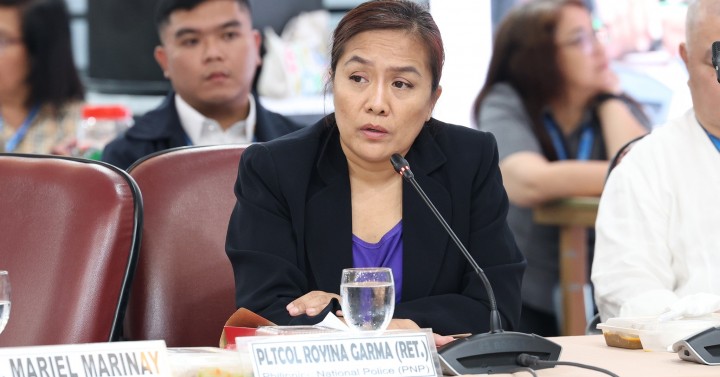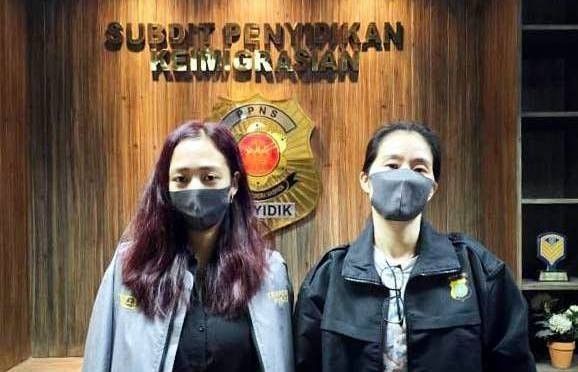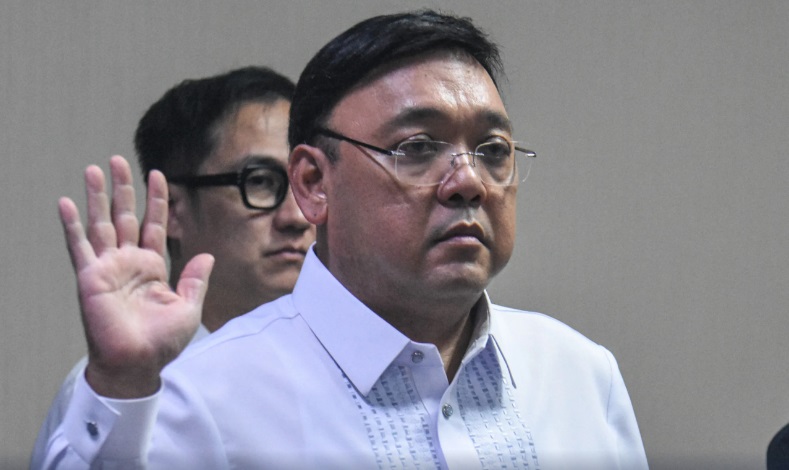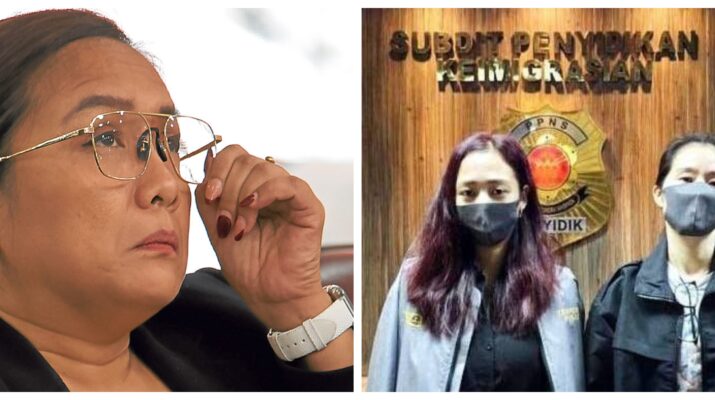After months of evading the House of Representatives’ Quad-Committee inquiry into his so-called “war on drugs”, former president Rodrigo Duterte surprised many when he announced that he was finally going to face the House on Wednesday, 13 November.
Keen followers of the House hearings were looking forward to this battle between the pugilistic former president and House members of the Quad-Comm who are equally combative, and have given Duterte’s former subordinates a difficult time during the inquiry.
However, it quickly became clear why Duterte suddenly became interested to attend the House hearing. The Quad-Comm’s star witness, retired police colonel Royina Garma, was found to have left the Philippines to flee to the United States.

It was Garma who revealed in previous iterations of the Quad-Comm’s hearings not only that the fabled Davao Death Squad (DDS) exists, but also that the previous administration implemented a cash rewards system for assassins. The retired police officer’s testimonies were crucial in implicating former president Duterte in the extra-judicial killings that were rife under both his terms as mayor of Davao City and as president of the Philippines.
With Garma having left the country, the Quad-Comm suddenly has a deficiency in pinning down Duterte for those alleged crimes. Again making sense of the former president’s abrupt interest in attending the next hearing.
While disappointing, what is more alarming is how Garma was able to flee the country to begin with. She was held in contempt by the House for her evasive replies during the earlier Quad-Comm hearings, but was later released after committing to attend future inquiries by the House mega panel.
Despite that, Garma is a prominent figure at the center of a highly-sensitive political investigation and should not have been allowed to leave the country. At the very least, her departure should have been flagged with both the House and Malacañang Palace.
Instead, domestic authorities learned of Garma’s escape after she was detained by U.S. Border Security in California. It should also be a cause for concern to us that Garma is not the first person-of-interest in ongoing investigations that managed to elude our own border security.

A concurrent investigation being done by the Quad-Comm concerns Philippine Offshore Gaming Operators (POGOs) and their links to Chinese organized crime. At the center of this separate inquiry is the disgraced ex-mayor of Bamban, Tarlac – Chinese national Guo Hua Ping, who posed as a Filipino citizen named Alice Guo; along her are her fellow Chinese nationals also implicated in illegal criminal activity in POGOs – her alleged sister, Zhang Mier or Shiela Guo, and Cassandra Ong.
All three women were able to elude authorities and fled the country last July. Despite their prominence in the Quad-Comm investigation into POGOs, authorities were unable to stop the three from leaving the country and escape to Malaysia and Indonesia.
The Guo “siblings” and Ong were extradited back to the Philippines after their arrest by Indonesia authorities. Even as they faced the House investigation again, authorities were still unable to explain how the three were able to leave the country or even where they went immediately after leaving Philippine borders.
Another person of interest in the POGO investigations is Duterte’s former spokesperson, Harry Roque. The lawyer and former legislator’s name was found on incorporating documents for one of the raided POGOs in Porac, Pampanga – implicating him in the controversy.
Roque’s entanglement in the POGO inquiry also put his personal wealth into question; bringing the Quad-Comm to demand evidence from him to explain the significant gain in his personal wealth. When Roque ignored this, an arrest order was issued against him.

Yet similar to what happened with Ong and the Guo “siblings”, Roque could not be found by authorities. His wife, who was also wanted by the House Quad-Comm for failing to attend its hearings, had left the country as well – again, evading authorities.
Like her husband, Mylah Roque was also entangled in the POGO controversy after it was found that she is one of the incorporators of a POGO facility that was raided for kidnapping and torture. Despite the Roque couple’s prominence in the POGO investigations, they were able to elude authorities and go into hiding.
The ability for high-profile suspects and persons-of-interests exposes our derelict border security and serious flaws in our immigration control. This is particularly baffling given the large sums of confidential and intelligence funds that government agencies with national security or law enforcement functions are given each year – to be used, precisely to contain criminal elements.
What the constant evasion of our authorities exposes is either that these suspects are backed by an even better equipped and better resourced entity, which has the ability to evade our own national border security; or that our own officials responsible for border security and immigration control are, themselves, complicit in the escape of these delinquent individuals.
Given the significant amounts allocated for intelligence gathering, that latter hypothesis is the more believable.
The course of the House Quad-Comm investigations on extra-judicial killings and POGOs are seemingly pointing to former president Duterte as either the mastermind, or a protector, of these criminal activities. It would not be surprising if there are key officials in the bureaucracy who continue to remain loyal to Duterte, and are deliberately undermining the Marcos government’s efforts to get to the root of these criminal icebergs.
Let’s just hope that these elements are weeded out as soon as possible.

